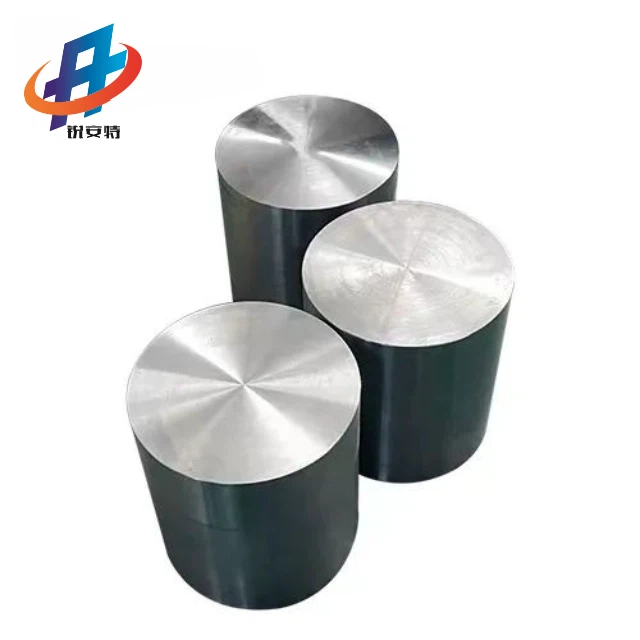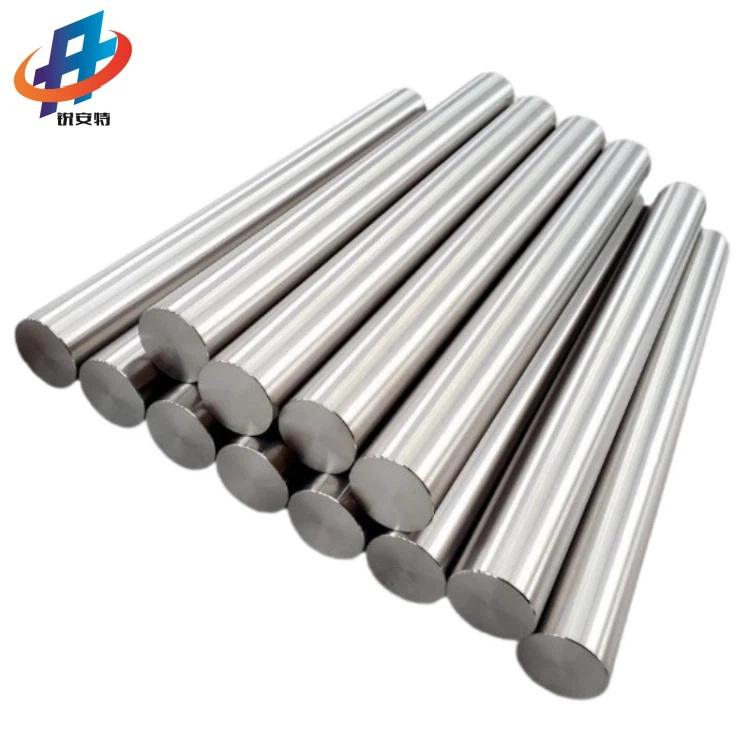
Titanium Alloy Bar For Medical
Medical titanium bar
Application: Medical, surgical implant(Bone nail implant, dentistry, etc.)
Standard : ASTM F67 ASTM F136,ISO 5832-3
Material Grade: Grade 2, Grade 5, Garde 23(Ti6Al4V ELI),Ti6Al7Nb
Diameter: 5mm 6mm 8mm 10mm 12mm 14mm 16mm 20mm etc.
Length: The common length is 3000mm, as customers' requests
Tolerance grade:h7 h8 h9 h10
Shape: Round
Surface: Bright
Supply status: Annealed M
Certificate: ISO 9001, third party inspection is available(SGS TUV, etc.).
Package: Export Carton box or plywood case.
Quality and Test: EN10204.3.1 certificate
Advantages of Titanium and Titanium Alloys as Marine Materials
Titanium and titanium alloys possess excellent properties that nearly meet all the requirements for marine materials, making them an almost perfect choice for shipbuilding. Their advantages are as follows:
Lightweight and High Strength: Titanium has a density of 4.5 g/cm³, which is higher than aluminum's 2.7 g/cm³ but lower than iron's 7.9 g/cm³, making it only 57% of iron's density. Although titanium's density is less than twice that of aluminum, its strength is three times greater. In industrial applications where high specific strength metals are required, titanium alloys are often the preferred material. Under similar conditions, submersibles made of titanium can reach depths of up to 10,000 meters, while steel submersibles cannot achieve such depths. Additionally, titanium is non-magnetic, meaning it is unaffected by magnetic fields of any strength. This makes titanium alloys resistant to magnetic attacks from mines and torpedoes, making them highly favored in military engineering applications.
Good Corrosion Resistance in Marine Environments: When titanium alloys are exposed to air and certain oxygen-containing media, they form a dense, strongly adherent, and stable oxide film due to the strong affinity between titanium and oxygen. This film protects the titanium substrate and is resistant to damage in many environments. Research indicates that in regions such as the South China Sea, North Sea, and East China Sea, titanium and its alloys exhibit corrosion rates close to zero over 16 years, whether in fully submerged, tidal, or splash zones. Thus, using titanium alloys in shipbuilding not only extends the lifespan of vessels but also reduces costs associated with surface corrosion protection.
Excellent Overall Performance: Titanium alloys can undergo various processing techniques, including cold and hot forming, free forging, extrusion, and welding, showcasing good adaptability for manufacturing. Studies show that titanium alloys do not have a brittle transition point in impact toughness tests conducted in the range of -60 to 20°C. Moreover, compared to aluminum alloys and steel, titanium alloys exhibit superior heat resistance, low-temperature performance, and fracture toughness.
Current Applications of Titanium Alloys in Shipping: Currently, countries that have specialized research and established systems for marine titanium alloys include Russia, the United States, Japan, and China. The accompanying table outlines the commonly used titanium components and alloys in ships both domestically and internationally.

Hot Tags: titanium alloy bar for medical, China titanium alloy bar for medical manufacturers, suppliers, factory, Gr 4 Titanium Sheet, Gr 4 Titanium Round Bar, Gr 5 Titanium Sheet, Gr 5 Titanium Round Bar, ASTM F136 Titanium Round Bar, Gr 1 Titanium Round Bar
You Might Also Like
Send Inquiry







